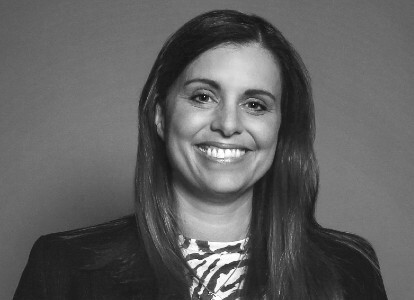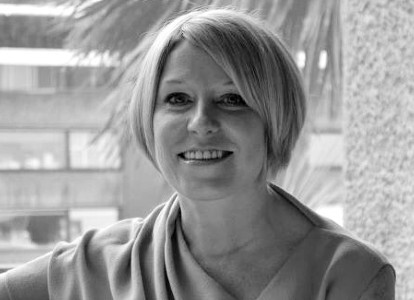
Our recent blog “Stop asking these interview questions – they will land you in court!” revealed questions some interviewers ask candidates that are not only inappropriate but illegal. Following on from this, we spoke to employment lawyer Kelly Thomson about the possible consequences of asking these no-go questions, and her cautionary advice is essential reading.
Kelly is a Partner at law firm RPC and has been recognised as both an inspirational and influential female leader in recent law industry awards. We asked all about her fascinating career, her commitment to Diversity, Equity and Inclusion, and the brilliant equality podcast The Fix which she co-hosts with gender equality academic and author, Michelle King.
1. Can you give us a brief overview of your career so far?
This is going to make me feel very old isn't it! I've been an employment lawyer for 20 years this coming September and during those two decades I've had the privilege of working with probably hundreds of employers across different sectors and locations on a huge range of people related projects and cases. In the early years of my career, as well as general HR advisory work and employment tribunal litigation, much of my work was focussed on transactional employment matters such as big public to private sector outsourcings, the people aspects of M&A transactions and multi-country reorganisations. More recently, I've also had the joy of building a practice focussed on diversity, equity and inclusion advice which involves working with employers to create and implement strategies to advance these priorities in their businesses and sectors as well as helping them when things don't go to plan. There have been some twists and turns along the way and highlights include being part of the team which took the first restrictive covenant case in over a century to the Supreme Court and getting the opportunity to mentor a number of brilliant female lawyers as they make their way up the career ladder. In my time I've worked a variety of different arrangements including a number of years working a three day week which was, at the time, relatively unheard of for lawyers. I've been a Partner at RPC for 3.5 years and one of my roles outside of my client advisory work is as the Partner Lead for the firm's ESG strategic priority. This means working closely with our Responsible Business team to create, communicate and embed our global strategy across environmental; health and wellbeing; diversity, equity, inclusion and belonging; pro bono and charities and report to the firm's Executive Committee on progress and impacts. It's certainly busy!
2. We recently shared our blog about the consequences of comms professionals asking certain illegal questions when interviewing job applicants. As you’re an experienced employment lawyer, we’re keen to know exactly how common is legal action against employers for asking unlawful questions at interviews?
It's a great question. I have not come across many cases of action being taken based solely on questions which were asked during interviews. My hope is that this reflects interviewer awareness that there are some topics which are just off limits. Though I suspect is also reflects that people may not always spot the unspoken bias behind more subtle questions and that, even if they do, many will simply not want to litigate. One reported case that sticks in the memory was where the first question to a female applicant was whether she had any children, which was followed up by the interviewer telling her that other parents had left the business quickly after joining and suggesting that she continue her job search elsewhere. Even though she found alternative employment within two weeks she was ultimately awarded £4,000 for injury to feelings resulting from the interview.
3. What are the consequences for interviewers and their employers who ask illegal questions?
From a legal perspective, the candidate can potentially bring a claim against the employer and the individual who asked the discriminatory questions. Even if the employer can defend themselves, showing they took all reasonable steps to prevent the discrimination, the interviewer can still be personally liable. Compensation for discrimination is uncapped so it will be down to the employment tribunal to decide what losses were caused by any unlawful discrimination and harassment. Perhaps less quantifiable – though crucial to account for - are the wider cultural and reputational risks which can arise, particularly where a candidate shares their negative experience online or with other potential recruits or even customers. Like reputation, positive workplace cultures take time and deliberate effort to build but can be significantly damaged much more quickly and unintentionally.
4. Can you share some advice for interviewers on how make sure they ask appropriate and legal questions when interviewing?
The Equality and Human Rights Commission (EHRC) Code of Practice has some helpful guidance, pointing out that interviews are, in reality, the stage in recruitment at which it is "easiest to make judgments about an applicant based on instant, subjective and sometimes wholly irrelevant assumptions". It recommends conducting interviews strictly on the basis of the application form, job description and/or person specification. Avoid veering into questions which are irrelevant to the job and that could potentially create issues. If an applicant volunteers that kind of information (eg by saying they are planning to have children) it is really important to take care not to allow yourself to be influenced by that information. From an organisational perspective, it is also important that employers train and educate their interviewers regularly, and support them in identifying where they may be falling into biases or assumptions and to disrupt that bias with objective decision making. It's important to keep accurate records which comply with data protection requirements and to document the decisions made in case you are challenged to justify them.
5. You co-host a podcast on equality called The Fix and you have been recognised as both an inspirational and influential female leader in recent law industry awards – impressive stuff! In your opinion what barriers do women face in law to reach senior roles?
Thank you! When I was studying law at university I remember saying, naively, to my Director of Studies that surely the lack of gender diversity in senior roles in the profession would fix itself over time given how many other women there were studying alongside me. She kindly informed me that she had thought the same when she was studying some two decades prior and not much seemed to have changed. Our conversation was 25 years ago and yet we are still struggling to convincingly crack the glass ceiling in law. The reality is – and there is a lot of research out there – inequity will not fix itself by the mere passage of time. In fact, there is some troubling data to suggest that we are, from a societal perspective, taking a backward step in some areas. There is a lot of research on the barriers that women face in progressing at work, and looking at how those barriers play out in my profession, despite organisational commitments I think law, like many other sectors, can still suffer from denial or minimisation of the problem at an individual level - which becomes a barrier to change. We may like to think that law is a pure meritocracy, and that hard work and talent is enough to see everyone through, but that fails to recognise that not everyone starts from the same position and that privilege is often about a lack of barriers. A lot of women who have children end up leaving the profession altogether – or stepping sideways within the law. Yet we can't say the same for any other genders in relation to parenting responsibilities. Why is that? The uncomfortable truth is that childcare responsibility (and, caring responsibility generally) falls disproportionately to women and this has a huge impact on career trajectories, progression, choice of job and, in turn, the gender pay gap. This impacts pretty much every sector but in law the time when a lawyer may otherwise start thinking about entering the partnership often comes at exactly the same time as they might, if that way inclined, also think about starting a family. Couple that with the fact that we are (still) usually paid by clients on the basis of time spent working, we can see why the sector is perhaps behind the curve in terms of embracing true flexibility and efficiencies to enable those with other responsibilities to better juggle those demands. There are lots of other challenges and barriers but, being positive, the good news is that there is more awareness of the problem across many organisations and lots of great work being done to move the dial, often in collaboration with clients which helps make change stick.
6. We know how passionate you are about issues of Diversity and Inclusion (D&I), a hot topic for comms professionals, too. What is the most important thing you would like to see all businesses doing to demonstrate their commitment to D&I over the next 5 years?
I would love to see diversity, equity and inclusion (DEI) become on a par with finance at a strategy and operational level. I'll tell you what I mean by that. In many businesses, DEI is and is seen as a siloed activity led by HR professionals or DEI experts and experienced by everyone else in "receive mode" through events, initiatives and one off activities. Whereas finance is usually owned by finance experts – and they are ultimately accountable – but, in any well-performing business, pretty much everyone in the organisation needs to understand the role that they play in the financial health and hygiene of the business and are accountable for delivering their part. If we can mainstream DEI priorities in this way – making it a core part of how everyone does their jobs – that's where we make real and sustainable change.
7. What’s the best piece of professional advice you’ve been given along the way, and by whom?
I was lucky enough to be mentored by the late, great Brenda Trenowden. She encouraged me to put myself forward for a promotion when I was capitulating about whether I could juggle it with home life and, frankly, having some imposter syndrome. She didn't minimise the concerns or tell me just to lean in. Instead, she encouraged me to think about the "so what" of my fears coming to fruition. My worry was I wouldn't be able to make the juggle work and Brenda helped me realise that, even if I failed, the worst case was I learned something and I could just change role again. I try to approach things outside my comfort zone at work with this mentality – just have a go, back yourself, after all what's the worst that can happen?
8. What is the biggest challenge you have faced in your career so far?
I made Partner in May 2020 when, you might remember, there was quite a lot happening in the world. As an employment lawyer, there were pretty much weekly changes in terms of new laws and government guidance on furlough, workplace health and safety and everything else - and we were having to get to grips with it in real time and advise clients on business critical decisions. I remember one point where we'd helped clients furlough about 30,000 employees – weeks previously the concept of furlough wasn't even part of our vernacular. Juggling this while making sure the team were OK and supported through the bizarre and stressful time was challenging but, also, a total privilege.
9. What keeps you awake at night?
Apart from our cat?! My children are at least now old enough not to keep me awake for which I'm very thankful. But I do worry about what the world of work will look like for them when they venture out into it. I think it will be very different to my experience and so I wonder how us parents will be able to help them best navigate that. That said, they teach me something new every day, so in many ways I am not overly worried about them! I feel really passionately that we need to embrace the responsibilities we each have as individuals and businesses to make positive change as well as making money and, on that, I do worry about some of the current backlash against DEI and, in some quarters, ESG and whether we are at risk of losing some of the lessons learned during and in the aftermath of Covid.
10. Do you have any hidden talents?
I can tap dance – does that count?! And I make a mean blueberry pancake which is probably, sadly, of more practical use.
Thanks, Kelly!
For a free download of our full Annual Salary Guide 2023, click here. Look out for the next Salary Survey... coming SOON.
Time for a change? Check out our latest jobs!
The Works Search: a search consultancy specialising in PR and corporate communications. We have unrivalled matching abilities and are known for finding the top 5% performers in the industry - the ones who deliver and make your reputation great. For more advice or market insights, do get in touch with us on 0207 903 9291 or email: sarah@the-works.co.uk.


